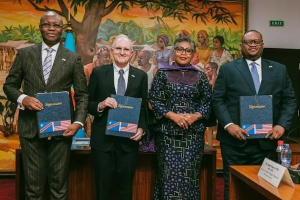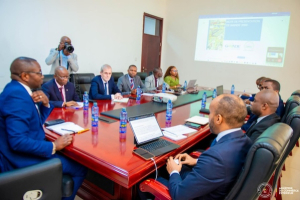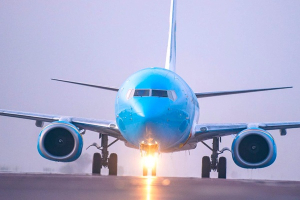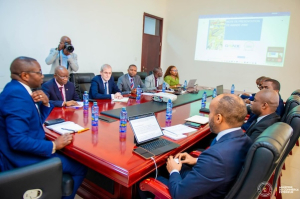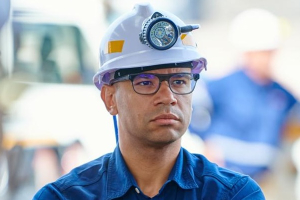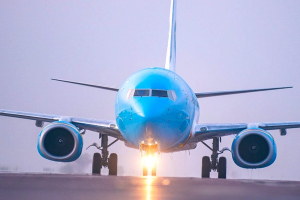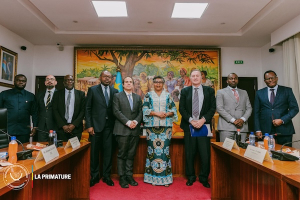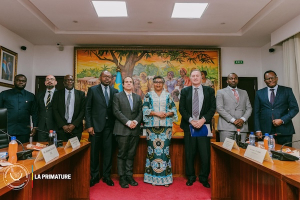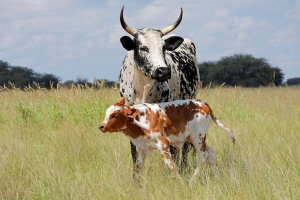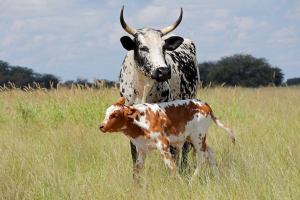Equipe Publication
RDC–États-Unis : un partenariat santé de 1,2 milliard $ sur cinq ans
La République démocratique du Congo (RDC) et les États-Unis ont signé, le 26 février à Kinshasa, un accord-cadre de coopération sanitaire présenté comme « historique ». Ce texte fixe les bases d’un partenariat stratégique renforcé dans le domaine de la santé publique pour la période 2026-2030.
L’enveloppe globale annoncée s’élève à 1,2 milliard de dollars, dont 900 millions mobilisés au titre de la coopération américaine et 300 millions correspondant à un engagement progressif du gouvernement congolais. Selon la communication officielle du 26 février 2026, l’objectif est de renforcer durablement le système national de santé et d’améliorer la prise en charge des populations.
L’accord prévoit un appui accru à la lutte contre le VIH/sida, la tuberculose et le paludisme, ainsi qu’un soutien à la santé maternelle et infantile. Il inclut également le renforcement de la surveillance épidémiologique, la préparation et la réponse aux urgences sanitaires, ainsi que la consolidation des systèmes de santé « à tous les niveaux ». Les autorités mettent en avant un partenariat fondé sur le transfert de compétences, le partage d’expertise et le renforcement des capacités institutionnelles, en cohérence avec la vision du président Félix Tshisekedi axée sur le développement du capital humain.
Cette annonce intervient dans un contexte de reconfiguration et de fortes perturbations des financements américains qui soutenaient une part importante de l’action humanitaire et sanitaire en RDC. Selon une analyse citée par la revue scientifique The Lancet Oncology, plus de 70 % des activités humanitaires en RDC étaient financées par les États-Unis en 2024, rendant le pays particulièrement exposé aux coupes ou aux gels de crédits.
Du côté de la réponse humanitaire, une note relayée par le Bureau de la coordination des affaires humanitaires des Nations unies (OCHA) indique qu’à la suite des réductions de capacité opérationnelle, environ 1,5 million de personnes ont perdu l’accès aux soins de santé primaires (fermetures de structures, pénuries de médicaments essentiels, capacités limitées de prévention et de réponse aux épidémies). La même source évoque la fermeture de plus de 1 000 centres de nutrition, privant plus de 390 000 enfants souffrant de malnutrition aiguë sévère d’un traitement.
À ce stade, les autorités n’ont pas détaillé publiquement l’ensemble des clauses relatives aux données, aux contreparties réglementaires ou aux obligations nationales progressives prévues sur la durée du partenariat. Plusieurs pays africains concernés par des cadres similaires ont récemment exprimé des réserves sur ces nouveaux dispositifs, certains dénonçant des exigences jugées intrusives en matière de partage de données sanitaires ou de ressources biologiques, ainsi que des conditionnalités financières accrues.
Boaz Kabeya
Lire aussi :
Fermeture de l’USAID : des centaines de millions de dollars destinés à la RDC menacés
Ebola au Kasaï : la Croix-Rouge lance un appel de 25 millions $ pour renforcer la riposte
Lutte contre Ebola : l’Union européenne mobilise 1,8 million € pour la RDC
DRC, Gaindé 2000 discuss implementation of digital trade procedures
A technical meeting was held on Feb. 24, 2026, in Kinshasa between the Ministry of Foreign Trade, Société d’Exploitation du Guichet Unique Intégral (SEGUCE-RDC), and the Senegalese company Gaindé 2000. According to a ministry statement, discussions focused on supporting the rollout of digitalized import, export and transit procedures launched on Dec. 29, 2025.
The reform is based on interconnecting the Single Window for Foreign Trade system (S-One) with the Sydonia customs system. It makes electronic transmission of supporting documents between SEGUCE and Customs mandatory. Required commercial documents for import and export operations are centralized within the Single Window system and automatically transferred to Customs for declaration processing. Authorities say the measure will reduce delays, strengthen traceability, curb documentary fraud and boost public revenue collection.
The ministry said the Feb. 24 meeting focused on establishing experience-sharing arrangements between SEGUCE-RDC and Gaindé 2000. The Senegalese firm developed the ORBUS system, a digital single window used notably at the port of Dakar.
According to information available on the ORBUS platform, the system and its Orbus Infinity version offer expanded functionalities by interconnecting stakeholders across the logistics and port chain, including freight forwarders, shipping companies, terminal operators, carriers and customs authorities. The platform also integrates value-added services that go beyond document transmission.
These include electronic signature functionality designed to ensure the authenticity and validation of documents issued for import and export procedures. The ministry said this solution is of particular interest to the Congolese authorities and was central to the Feb. 24 technical meeting in Kinshasa.
Gaindé 2000 has also been implemented in several African countries, including Burkina Faso, Kenya, Côte d’Ivoire, Guinea-Conakry and Guinea-Bissau, according to the ministry.
Timothée Manoke
Air Congo to launch first five regional routes from March 2026
Congo’s national carrier Air Congo said on Wednesday it would launch its first five regional routes from March 2026, marking its expansion beyond domestic operations.
The announcement comes nearly a week after the delivery of a Boeing 737-800, bringing its fleet to three aircraft of the same type. The transport ministry had previously said the aircraft was part of a strategy to open new regional destinations.
Flights to Entebbe and Johannesburg will begin on March 22. Services to Cotonou and Douala will start on March 28, followed by Dar es Salaam on April 4, 2026. Air Congo is 51% owned by the Congolese state and 49% by Ethiopian Airlines. The expansion extends its network across Central, East and Southern Africa.
Competition on the Kinshasa-Entebbe route
By launching flights to Entebbe, Air Congo enters a route already served by Uganda Airlines. The Ugandan carrier operates six weekly flights on the route.
However, Uganda Airlines has faced operational difficulties in recent months, including flight cancellations and baggage delays. In addition, two Airbus A330-800neo aircraft have been grounded since Feb. 20 for maintenance issues, temporarily reducing long-haul capacity and complicating scheduling at a time of strong regional demand.
In a letter dated Feb. 13, 2026, Ugandan President Yoweri Museveni instructed the transport minister to appoint Girma Wake, former chief executive of Ethiopian Airlines, as acting general manager of Uganda Airlines. The move aims to address management weaknesses identified within the state-owned carrier.
On the Kinshasa-Dar es Salaam route, Air Congo will compete with Air Tanzania, which has operated four weekly flights since April 2025. The Tanzanian carrier first launched services to Lubumbashi before expanding to Kinshasa.
Limited competition on Kinshasa-Douala
Currently, travellers heading to Douala or Cotonou from Kinshasa must connect via Addis Ababa, Lomé or Abidjan. Direct flights would significantly reduce travel times.
That exclusive position on the Kinshasa-Douala route may be short-lived. Cameroon’s state-owned Camair-Co has said it plans to launch services to Kinshasa, initially announced for late 2025.
Founded in 2024, Air Congo has so far operated only domestic routes, serving Kinshasa, Lubumbashi, Kisangani, Mbuji-Mayi, Kananga, Kindu and Kolwezi with two Boeing 737-800s. Speaking at the Makutano forum last year, Transport Minister Jean-Pierre Bemba said the airline had recorded load factors of between 80% and 100%, encouraging management to expand regionally.
The airline also said it expects to receive an ATR 72-600 next month to strengthen its domestic network. The aircraft will be used to serve Beni, Bunia, Isiro, Gbadolite, Mbandaka and Kalemie.
Timothée Manoke
Import-export : la RDC discute avec Gaindé 2000 pour accélérer la dématérialisation
Une réunion technique s’est tenue le 24 février 2026 à Kinshasa entre le ministère du Commerce extérieur, la Société d’Exploitation du Guichet Unique Intégral (SEGUCE-RDC) et l’entreprise sénégalaise Gaindé 2000. D’après une communication officielle du ministère, les échanges ont porté sur l’accompagnement de la mise en œuvre de la dématérialisation des procédures d’importation, d’exportation et de transit des marchandises, lancée le 29 décembre 2025.
Cette réforme repose sur l’interconnexion du système informatique du Guichet unique du commerce extérieur (S-One) et du système douanier Sydonia. Elle rend obligatoire la transmission électronique de la liasse documentaire entre la SEGUCE et la Douane. Les documents commerciaux nécessaires aux opérations d’import-export sont ainsi centralisés au niveau du Guichet unique, puis transférés automatiquement vers la Douane pour le traitement des déclarations. Les autorités présentent cette mesure comme un levier de réduction des délais, de renforcement de la traçabilité, de limitation de la fraude documentaire et d’amélioration de la mobilisation des recettes publiques.
Selon le ministère du Commerce extérieur, la rencontre du 24 février a porté sur la mise en place de mécanismes de partage d’expériences entre la SEGUCE-RDC et Gaindé 2000. L’entreprise sénégalaise est connue pour avoir développé le système ORBUS, un guichet unique dématérialisé utilisé notamment au port de Dakar, au Sénégal.
D’après les éléments disponibles sur la plateforme ORBUS, le système et sa déclinaison Orbus Infinity proposent des fonctionnalités élargies, en interconnectant plusieurs intervenants de la chaîne logistique et portuaire, notamment les transitaires, les compagnies maritimes, les manutentionnaires portuaires, les transporteurs et l’administration douanière. Le système intègre des services à valeur ajoutée qui dépassent la seule transmission documentaire.
Parmi ces services figure la signature électronique, destinée à assurer la validation et l’authenticité des documents délivrés dans le cadre des procédures d’importation et d’exportation. Selon le communiqué du ministère, cette solution intéresse particulièrement la partie congolaise et a été au centre de la réunion technique tenue le mardi 24 février à Kinshasa.
Selon le ministère du Commerce extérieur, Gaindé 2000 a déjà montré ses preuves dans plusieurs pays africains, notamment le Burkina Faso, le Kenya, la Côte d’Ivoire, la Guinée-Conakry et la Guinée-Bissau.
Timothée Manoke
Olivier Binyingo (Kamoa Copper) : « Nous allons vers une pénurie structurelle de cuivre »
En 2025, le développement du complexe cuprifère de Kamoa-Kakula, le plus grand de la République démocratique du Congo (RDC), a été marqué par deux événements majeurs : l’incident sismique et l’entrée en service de sa nouvelle fonderie, d’une capacité nominale de 500 000 tonnes de concentrés par an. Dans cet entretien exclusif, le président du conseil d’administration de Kamoa Copper, coentreprise propriétaire du complexe, revient sur leurs conséquences pour le projet, le secteur minier, l’économie du pays et la dynamique mondiale de l’offre de cuivre. À la tête d’une société qui compte parmi ses actionnaires le groupe chinois Zijin Mining (39,6% des parts), Olivier Binyingo se prononce également sur le partenariat stratégique entre la RDC et les États-Unis, visant notamment à favoriser l’investissement américain dans le secteur minier congolais. Par ailleurs vice-président chargé des affaires publiques chez Ivanhoe Mines, opérateur de Kamoa-Kakula, il évoque aussi les besoins du projet en électricité, le corridor de Lobito ou encore les relations avec les communautés riveraines.
Bankable : Les premières anodes de cuivre ont commencé à sortir de la nouvelle fonderie de Kamoa Copper, mise en service en novembre 2025. Cette fonderie est présentée comme la plus grande et la plus verte du continent. Pourquoi ?
Olivier Binyingo : Parce que c’est factuel (sourire…). C’est la plus grande fonderie de cuivre en Afrique, et la plus grande en son genre dans le monde. Il n’y a que quatre fonderies de ce type dans le monde. Celle-ci est la dernière, et la plus grande. C’est un investissement très important pour la RDC et pour l’Afrique : on parle de plus ou moins 1,3 milliard de dollars.
Et elle est plus verte pour plusieurs raisons. D’abord, la technologie. Comme c’est la plus récente, on a pu bénéficier des dernières avancées, notamment pour réduire les émissions de gaz à effet de serre. Cette technologie permet de capter plus de 99 % des émissions de dioxyde de soufre qui seraient sinon émises dans l’atmosphère.
Ensuite, l’énergie. Une fonderie consomme beaucoup d’électricité, même si elle en autogénère une partie. La chaleur générée produit environ 8 MW, réutilisés pour le fonctionnement. Mais la fonderie consomme autour de 70 MW : le reste est alimenté par de l’énergie verte grâce aux travail réalisé avec la SNEL (Société nationale d’électricité) permet d’alimenter la fonderie en hydroélectricité.
Dernier point, plus indirect : la mise en service de la fonderie— surtout avec une montée en puissance plus rapide que ce qu’on avait nous-mêmes espéré — réduit fortement les volumes transportés. Avant, on exportait du concentré ; aujourd’hui, on est sur des anodes. Les volumes sont plus ou moins divisés par deux : moins de camions, donc moins d’émissions dans la chaîne logistique. Voilà pourquoi elle est verte : par la technologie, par l’énergie, et aussi par les effets sur la logistique.
Bankable : Cet investissement permet de passer d’une production de cuivre en concentré à grande échelle à une production d’anodes de cuivre. Très concrètement, qu’est-ce que cela change pour Kamoa Copper, pour l’État et pour les populations locales ?
OB : Au-delà des effets environnementaux, transporter la moitié des volumes, c’est aussi un gain sur les coûts logistiques, qui pèsent dans les coûts opérationnels. Si on utilisait les mêmes modes de transport qu’avant — en mettant de côté l’impact de Lobito — ces coûts seraient plus ou moins divisés par deux.
La politique d’industrialisation de la RDC est confrontée à des défis, mais on a démontré qu’il est, malgré tout, possible de réaliser une infrastructure de cette envergure. En quelque sorte, la fonderie est devenue un ambassadeur de cette politique.
Sur le plan social, la fonderie crée environ 1 000 emplois, dédiés à cette unité. Ce sont des emplois spécialisés, parce qu’on est sur une technologie de pointe. Il a fallu former les employés : certains ont été formés à l’étranger, en Chine et y compris en Zambie, où l’une des fonderies utilisant la même technologie est basée. Il y a donc création d’emplois, mais aussi montée en compétences.
Et pour le pays, la fonderie s’inscrit dans la logique de créer plus de valeur ajoutée localement, plutôt que d’exporter des produits à moindre valeur. La politique d’industrialisation de la RDC est confrontée à des défis, mais on a démontré qu’il est, malgré tout, possible de réaliser une infrastructure de cette envergure. En quelque sorte, la fonderie est devenue un ambassadeur de cette politique.
Bankable : Comme vous le dites, avec cette fonderie, vous répondez à la volonté de l’État d’accroître la transformation locale. Mais l’intégralité de la production de ce four est déjà couverte, pour une certaine durée, par des accords d’achat conclus pour l’essentiel avec des entités liées. Pourquoi ce choix ? Est-ce que cela a été fait aux conditions les plus compétitives et dans la plus grande transparence, comme le souhaite l’État ?
OB : Avoir des contrats d’achat bien établis, sur une durée plus ou moins longue, est une pratique standard pour un projet de l’envergure de Kamoa-Kakula. Ces contrats contribuent au financement, non seulement de la fonderie, mais aussi des développements futurs.
Dans la sélection des acheteurs, il y a un processus d’appels d’offres pour identifier ceux qui sont intéressés et capables d’absorber des volumes importants. La mise en concurrence permet d’obtenir des prix compétitifs au bénéfice du projet.
Le gouvernement est actionnaire à 20 % de Kamoa Copper et a été associé au processus de sélection des acheteurs, du début à la fin. Ses intérêts sont alignés avec ceux de Kamoa Copper : obtenir les meilleurs prix et les meilleures conditions, avec une garantie supplémentaire de transparence.
Bankable : L’État souhaite par ailleurs un engagement plus important en matière de contenu local, notamment de sous-traitance. Quelle est, à ce jour, la contribution de Kamoa Copper en la matière, et pensez-vous pouvoir aller plus loin ?
OB : Il faut toujours avoir l’ambition d’aller plus loin. Il y a plusieurs volets. Le premier, c’est la conformité : la loi sur la sous-traitance oblige les sociétés minières à recourir à des entreprises dont au moins 51 % du capital est congolais. Kamoa Copper s’y conforme et travaille avec des sociétés enregistrées et certifiées par l’ARSP (Autorité de régulation de la sous-traitance dans le secteur privé).
Depuis le début des opérations de production, on a dépensé plus ou moins 8,3 milliards de dollars auprès des fournisseurs locaux.
Ensuite, quand on passe de la fourniture de services à la fourniture de biens, aujourd’hui, plus ou moins 70 % des biens achetés par le projet Kamoa-Kakula le sont auprès de sociétés congolaises. Mais, comme il faut toujours aller plus loin (sourire…) et parce que certaines PME ont besoin d’accompagnement pour accéder aux marchés, se structurer et grandir avec les projets miniers, nous offrons un appui, par exemple pour l’obtention de financements, et du mentorat pour aider ces entreprises à répondre aux besoins du projet. Il y a aussi une facilitation pour créer des coentreprises : des sociétés internationales sont mises en relation avec des PME locales, afin de transférer de l’expertise et renforcer leurs capacités.
Enfin, sur l’impact communautaire, Kamoa a investi, même avant le début de la production en 2021, dans des entreprises détenues à 100 % par des membres des communautés voisines, avec un apport en financement et en savoir-faire. Kamoa a été leur premier client. Certaines existent depuis bientôt dix ans : elles ont grandi et diversifié leurs clients. C’est ce tissu économique qu’on veut renforcer autour du projet.
Bankable : Alors, l’enveloppe consentie à la sous-traitance est de quel ordre de grandeur ?
OB : Depuis le début des opérations de production, on a dépensé plus ou moins 8,3 milliards de dollars auprès des fournisseurs locaux.
Bankable : Malgré votre engagement social, les défis ne manquent pas. Une manifestation des populations locales sur l’une des routes menant à vos installations a perturbé l’activité le 21 avril 2025. Comment éviter ce type d’incident ?
OB : Des défis, il y en aura toujours. Les marches d’avril de l’année passée s’inscrivent dans un contexte spécifique, mais il est vrai que tout projet industriel qui s’installe dans une zone sans tradition de développement industriel peut générer des perturbations. Il faut donc un dialogue continu avec les communautés qui sont affectées, positivement ou négativement, en amont et tout au long de la vie du projet.
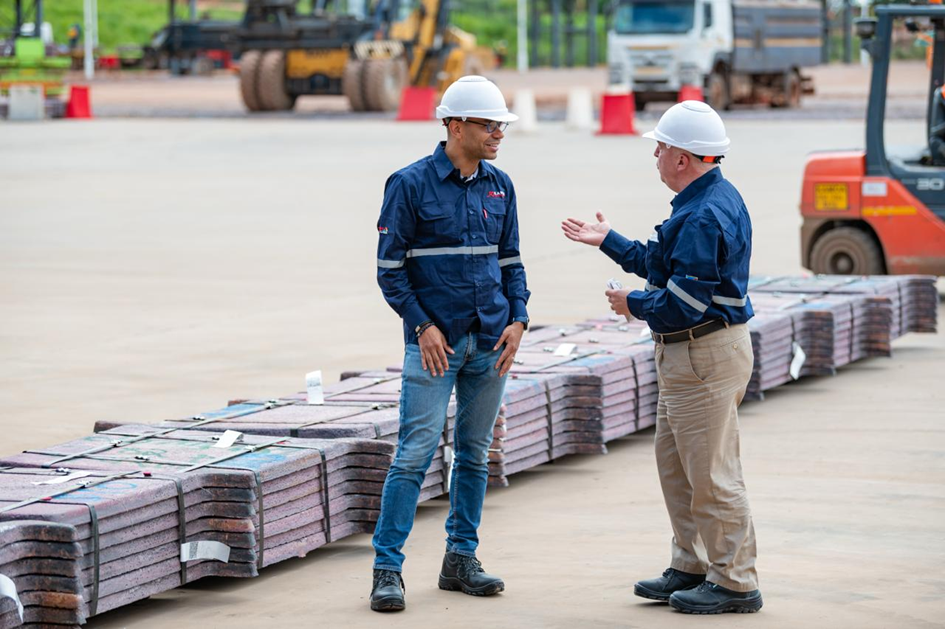
Outre les enjeux liés à l’artisanat minier, l’écosystème entourant les sites d’exploitation est sujet à des stratégies d’acteurs variés. Ces derniers, parfois extérieurs à la zone d'influence directe, cherchent à s'intégrer dans les circuits de bénéfices générés par l'activité minière.
Nous avons développé de très bonnes relations avec les communautés voisines, mais il peut y avoir des moments de tension à gérer. Avril 2025 a été l’un de ces moments. Depuis, on a répondu aux questions principales soulevés par les communautés et les autorités provinciales. Le dialogue a été rétabli, et la situation est plus apaisée.
Bankable : Si nos informations sont exactes, pour financer cette fonderie qui a nécessité un investissement de 1,1 milliard de dollars, vous auriez eu en partie recours au financement bancaire. Quelle a été la contribution du secteur bancaire local, et singulièrement d’une institution comme Rawbank, qui a souvent accompagné le projet Kamoa-Kakula ?
OB : Il n’y a pas eu de financement spécifiquement dédié à la fonderie. Mais le projet, dans son ensemble, a bénéficié de financements externes. Une partie a été couverte par les flux de trésorerie internes, les apports des actionnaires et certains contrats d’achat. C’était l’objectif en décidant de construire le projet en plusieurs phases.
Sur les institutions financières nationales, il y en a plusieurs. Rawbank a été parmi les premières à accompagner le projet, mais depuis, la plupart des banques d’envergure en RDC ont été impliquées d’une manière ou d’une autre.
Nous avons un partenariat de longue date avec la SNEL (…). Au total, cela fait 256 MW injectés grâce à notre financement.
Des projets de cette taille permettent aussi au secteur bancaire local de s’épanouir et de se professionnaliser. Il y a un mouvement dans les deux sens : nous avons besoin de financements, et ces projets permettent aux banques de grandir.
Bankable : Avec le développement du projet, vos besoins en électricité ne cessent de croître et sont projetés à 347 MW d’ici fin 2028. Selon vos projections, vous disposez d’une offre suffisante pour les couvrir avec de l’énergie propre, notamment grâce à un investissement de 450 millions de dollars dans la réhabilitation de la 5ᵉ turbine d’Inga II et des réseaux associés. D’autres projets similaires avec la SNEL sont-ils prévus ?
OB : Nos besoins en électricité sont très importants, et ils vont encore augmenter avec les prochaines phases.
Nous avons un partenariat de longue date avec la SNEL, commencé avec la réhabilitation de la centrale hydroélectrique de Mwadingusha en 2021, qui a permis une injection de 78 MW sur le réseau national. L’étape la plus récente, c’est le G5 à Inga II, mis en service au dernier trimestre de l’année passée, pour une capacité de 178 MW. Au total, cela fait 256 MW injectés grâce à notre financement.
Mais le projet n’est pas totalement achevé, parce que la capacité de transmission entre Inga et le Grand Katanga ne permet pas encore de transférer toute la production vers le Katanga. Nous continuons donc à travailler sur la transmission.
D’autres projets à venir ? C’est tout à fait possible. La SNEL a un patrimoine immense et d'énormes besoins d'investissements, et comme notre partenariat se passe très bien, la porte reste ouverte. Mais pour l'instant, on se concentre vraiment sur la finalisation du volet transmission du G5 avant de concrétiser quoi que ce soit d’autre.
Bankable : Vous envisagez également d’installer une capacité solaire de 120 MW en continu. Deux projets de 30 MW chacun sont déjà en cours. À quelle échéance espérez-vous atteindre cet objectif ? Et sera-t-il réalisé selon le même modèle que les projets en cours ?
OB : Les deux projets de 30 MW avec des producteurs indépendants devraient être mis en service au deuxième trimestre de cette année. Pour la suite, on peut répliquer le même modèle : il est maintenant rodé, et cela devrait permettre d’aller plus vite.
La deuxième phase est en cours : les fournisseurs ont été identifiés et les négociations ont débuté. Si tout va bien, en 2027, on devrait atteindre les 120 MW. Dès que les préalables seront finalisés, on annoncera un calendrier plus précis.
Bankable : En mai dernier, une activité sismique s’est produite sur le complexe, vous obligeant à interrompre les opérations dans une partie de la mine. Sait-on aujourd’hui exactement quelle en a été l’origine ? Peut-on déterminer si un tel événement est susceptible de se reproduire ?
OB : Cela a rappelé à tout le monde que, malgré les avancées techniques, l’activité minière reste dangereuse. Heureusement, contrairement à d’autres incidents survenus l’année passée dans d’autres opérations importantes, nous n’avons eu à déplorer ni mort d’homme ni blessé, grâce à des décisions responsables : les équipes ont privilégié la vie humaine dès qu’une instabilité a été constatée dans la mine.
Nous avons amélioré nos méthodes pour détecter plus rapidement certains mouvements sismiques et adapter les infrastructures afin de mieux absorber ces pressions si elles se reproduisaient.
Après l’évacuation des personnes, nous avons suspendu les opérations et évacué la plupart des engins. Sur le plan économique, il n’y a pas eu de perte importante. Nous avons ensuite fait venir des experts externes qui ont analysé les infrastructures. Ils ont conclu que l’activité sismique était due à une redistribution de pression souterraine entre différents piliers de la mine à Kakula. Cela a provoqué des chutes de roche et affecté la capacité de pompage, ce qui a conduit à l’inondation d’une partie de la mine de Kakula. Ce type de pression est assez commun dans des opérations souterraines profondes.
À la suite de ces conclusions, nous avons amélioré nos méthodes pour détecter plus rapidement certains mouvements sismiques et adapter les infrastructures afin de mieux absorber ces pressions si elles se reproduisaient.
Bankable : Cet événement a ralenti votre dynamique de production. Vous avez revu à la baisse vos objectifs de production. Et c’est désormais en 2027 que vous espérez dépasser la barre de 500 000 tonnes. Comment voyez-vous l’avenir ?
OB : On se focalise souvent sur les prévisions revues à la baisse, mais malgré tout, Kamoa-Kakula a produit plus de 388 000 tonnes de cuivre en 2025. On espérait faire mieux en début d’année passée, mais cela reste une opération majeure, et avec ces chiffres, on reste dans le top 10 mondial. Nous continuons à contribuer fortement à l’économie nationale, d’autant que la hausse des cours du cuivre a atténué l’impact d’une production plus faible.
Il faut aussi rappeler que Kamoa-Kakula, ce sont plusieurs mines. Kakula a été affectée, mais Kamoa et Kansoko ne l’ont pas été, et leurs performances ont même dépassé les projections.
Notre fondateur l’explique depuis des années : l’offre ne pourra pas répondre à la demande, parce que découvrir des gisements et construire des mines prend du temps. Nous allons vers une pénurie structurelle de cuivre.
Pour remonter la production, un point clé, c’est l’exhaure de Kakula. Elle est quasiment finalisée, hormis la partie la plus profonde à l’est. Nous retrouvons l’accès à des zones à haute teneur, et nous créons des accès supplémentaires vers d’autres zones de même teneur. Progressivement, la production va repartir à la hausse.
Cette année, nos projections sont entre 370 000 et 420 000 tonnes. L’année prochaine, on envisage déjà d’aller au-delà de 500 000 tonnes. À moyen terme, on pense se stabiliser autour de 550 000 tonnes par an. Donc, après une période de ralentissement d’environ deux ans, on visera à nouveau au-delà de 500 000 tonnes.
Bankable : Comme vous l’avez indiqué, grâce à la hausse des prix du cuivre, vous avez pu minorer l’impact de la baisse de la production. Votre chiffre d’affaires a même augmenté de 5 % pour atteindre 3,3 milliards de dollars. Quelles sont vos projections des prix pour les prochaines années ?
OB : L’année passée, deux facteurs ont joué. D’une part, des incidents ont touché plusieurs mines productrices de cuivre, y compris Kamoa-Kakula : côté offre, cela a eu un impact.
Côté demande, les besoins en minerais critiques — et en cuivre en particulier — sont devenus évidents : électrification, véhicules électriques, intelligence artificielle. Il y a une tendance, et il est très improbable qu’elle s’inverse.
Notre fondateur l’explique depuis des années : l’offre ne pourra pas répondre à la demande, parce que découvrir des gisements et construire des mines prend du temps. Nous allons vers une pénurie structurelle de cuivre. Donc, la tendance à la hausse des prix devrait se confirmer et s’accélérer.
Bankable : Au début de cette interview, vous laissiez entendre que le corridor de Lobito a un impact sur vos coûts logistiques. Le ministre des Transports, Jean-Pierre Mbemba, évoque une réduction pouvant atteindre 30 %. Alors, à ce jour, quelles sont les quantités que vous faites passer par Lobito ? Toute la production d’anodes de cuivre a-t-elle vocation à être expédiée uniquement par cette voie ?
OB : Pas forcément. D’autres corridors restent pertinents. Il faut diversifier le risque en utilisant plusieurs routes, et cela crée aussi une concurrence qui peut réduire les coûts.
Lobito reste important parce que la distance entre nos opérations et le port de Lobito est environ la moitié de celle vers Durban, par exemple. Cela joue sur le temps et sur les coûts, avec aussi un effet environnemental.
Pour cette année, on prévoit expédier entre 50 000 et 70 000 tonnes via Lobito, mais ce ne sont pas des chiffres figés : cela dépendra de sa montée en puissance et de la compétitivité des autres corridors.
Nous avons été les premiers à mettre des volumes sur Lobito, d’abord pour le concentré. Le premier lot d’anodes sera bientôt sur le rail : il a déjà quitté le site pour Kolwezi.
Lobito est encore en montée en puissance. Pour cette année, on prévoit expédier entre 50 000 et 70 000 tonnes via Lobito, mais ce ne sont pas des chiffres figés : cela dépendra de sa montée en puissance et de la compétitivité des autres corridors.
Bankable : Les États-Unis ont conclu, en décembre dernier, un accord stratégique avec la RDC visant notamment à favoriser l’investissement américain dans le secteur minier congolais. Comment le PCA de Kamoa Copper, qui compte des intérêts chinois, perçoit-il cette évolution ? S’agit-il d’un risque ou d’une opportunité, et pourquoi ?
OB : Il le perçoit de façon très sereine. Où que l’on se situe, le besoin en minerais critiques sera là. Et si l’on veut atteindre les objectifs que nous nous sommes fixés en tant que communauté mondiale, cette dynamique est irréversible.
En tant que PCA d’une opération cuprifère d’envergure, on ne peut que s’en réjouir. Les besoins en cuivre et en minerais critiques dépassent les divisions géopolitiques. Cela devrait soutenir les prix, et c’est une opportunité importante pour la RDC de contribuer, avec son secteur minier, au développement de son économie et de sa population.
Interview réalisée par Aboudi Ottou
Lire aussi :
Kamoa-Kakula : revenus 2025 en hausse de 5 % à 3,3 milliards $ malgré l’incident sismique
Kamoa-Kakula : l’investissement dans la fonderie chiffré à 1,1 milliard $
Kamoa-Kakula : l’objectif de 500 000 tonnes repoussé à 2027
Kamoa-Kakula : la demande électrique projetée à 347 MW d’ici fin 2028
Corridor de Lobito : début des travaux sur la section Tenke–Kolwezi–Dilolo attendu fin 2026
Minerais critiques, sécurité, fiscalité… : ce que prévoit l’accord RDC–États-Unis
Air Congo ouvre ses 5 premières destinations régionales dès mars 2026
La compagnie aérienne nationale Air Congo a annoncé, via ses canaux officiels le 25 février 2026, l’ouverture de cinq premières lignes africaines à partir du mois de mars 2026.
Cette annonce intervient près d’une semaine après la réception d’un nouvel appareil de type Boeing 737-800, portant la flotte à trois avions du même modèle. Le ministère des Transports avait déjà indiqué que cet appareil s’inscrivait dans une stratégie d’ouverture vers de nouvelles destinations régionales.
Les nouvelles dessertes concernent Entebbe et Johannesburg dès le 22 mars, Cotonou et Douala à partir du 28 mars, ainsi que Dar es Salaam dès le 4 avril 2026. La compagnie, détenue à 51 % par l’État congolais et à 49 % par Ethiopian Airlines, marque ainsi sa présence en Afrique centrale, orientale et australe.
Concurrence sur l’axe Kinshasa–Entebbe
Avec l’ouverture de la ligne Kinshasa–Entebbe, Air Congo se positionne sur un axe déjà exploité par Uganda Airlines, qui y opère six rotations hebdomadaires. La compagnie ougandaise traverse toutefois une période marquée par des difficultés opérationnelles, notamment des annulations de vols et des retards de bagages signalés ces derniers mois.
À ces contraintes s’ajoute l’immobilisation, depuis le 20 février, de deux aéronefs de type Airbus A330-800neo pour des problèmes de maintenance, réduisant temporairement la capacité long-courrier du transporteur et accentuant les tensions sur la planification des vols. Cette situation intervient alors que la flotte demeure limitée et que la demande régionale reste soutenue.
Dans une correspondance datée du 13 février 2026, le président ougandais Yoweri Museveni a instruit son ministre des Transports de confier l’intérim de la direction générale à Girma Wake, ancien directeur général d’Ethiopian Airlines. Cette décision vise à corriger les faiblesses de gestion identifiées au sein du transporteur public ougandais.
Sur la liaison Kinshasa–Dar es Salaam, Air Congo rejoint Air Tanzania, qui opère quatre fréquences hebdomadaires depuis avril 2025. La compagnie s’était d’abord implantée en RDC via Lubumbashi avant d’étendre ses opérations vers la capitale congolaise.
Monopole sur l’axe Kinshasa–Douala
En revanche, pour rejoindre Douala (Cameroun) ou Cotonou (Bénin), les voyageurs doivent actuellement transiter par Addis-Abeba (Éthiopie), Lomé (Togo) ou Abidjan (Côte d’Ivoire). L’instauration de lignes directes depuis la RDC serait donc favorablement accueillie par une clientèle en quête de gains de temps.
Ce monopole pourrait toutefois être de courte durée, notamment sur la liaison Kinshasa–Douala. La compagnie publique camerounaise Camair-Co prépare en effet l’ouverture d’une ligne vers Kinshasa, initialement annoncée pour la fin de l’année 2025.
Fondée en 2024, Air Congo desservait jusqu’ici des destinations domestiques, notamment Kinshasa, Lubumbashi, Kisangani, Mbuji-Mayi, Kananga, Kindu et Kolwezi, avec deux Boeing 737-800. Lors du forum Makutano l’an dernier, le ministre Jean-Pierre Bemba indiquait que la compagnie enregistrait des taux de remplissage compris entre 80 % et 100 %, un niveau qui aurait conforté la direction dans sa décision d’élargir son réseau régional.
La compagnie a également annoncé l’arrivée, dès le mois prochain, d’un appareil de type ATR 72-600 destiné au renforcement du réseau intérieur. Cet avion permettra de desservir Beni, Bunia, Isiro, Gbadolite, Mbandaka et Kalemie.
Timothée Manoke
Lire aussi :
Air Congo renforce sa flotte et vise des liaisons régionales en 2026
Congo Airways : Jean-Pierre Bemba attribue le blocage de la relance à la CNSS
DRC Seeks ITC Support to Integrate Battery Minerals Into Global Value Chains
Prime Minister Judith Suminwa Tuluka received officials from the Congolese Battery Council (CCB) and the International Trade Centre (ITC) on Feb. 24, 2026. The meeting focused on a strategic partnership to develop local value chains for battery minerals, according to an official statement issued afterward.
The initiative seeks technical support from the ITC and access to its international network to advance local processing by identifying public-private partnerships and target markets. Officials describe the project as cross-cutting, mobilizing the energy, mining, industry, infrastructure and trade sectors.
Against that backdrop, Kinshasa is seeking to narrow the gap between its mineral resources and end markets. The involvement of the ITC, a U.N. agency specializing in trade support and the integration of developing countries into global value chains, suggests an approach focused on market access, standards and international partnerships, at a time when the battery strategy has yet to translate into finalized industrial investments.
Interministerial Coordination Challenges
In March 2025, then-Industry and SME Development Minister Louis Watum Kabamba launched construction at the Musompo Special Economic Zone (SEZ) in Lualaba province. The zone is intended to host activities ranging from precursor materials to battery production, with a possible extension into assembly. It covers more than 900 hectares. Construction costs are estimated at over $200 million, and roughly $2 billion in private investment has been targeted, with projections of 25,000 direct jobs and 60,000 indirect jobs.
Progress has been slow. In November 2025, at the Makutano forum, the chief executive of Arise IIP, a developer involved in several SEZs in the Democratic Republic of Congo including Musompo, expressed concern about a slowdown in the project. “The project seems to have slowed following the minister’s departure from the Industry Ministry in August,” said Romain Deniel.
Deniel noted that establishing a special economic zone “requires the involvement of four, five, sometimes six ministries” and therefore demands “significant coordination.” He added that beyond the administrative framework, the battery value chain is a “very strategic” segment that also requires the buy-in of existing operators, given the project’s potential to affect the structure of the value chain.
The ITC Lever
Taken together, these developments highlight a central issue: local processing depends not only on political will or technical studies, but on the state’s ability to sustain stable interministerial coordination across mining, energy, industry, finance and infrastructure, while navigating a mining sector already structured around export chains and dominant players. The trade-offs extend beyond tax incentives to energy and infrastructure access, local content requirements, supply conditions and the role of incumbent operators in the future industrial model.
In that context, the announced cooperation with the ITC represents a complementary lever. While industrial projects are still building momentum, Kinshasa is seeking to secure another critical link, namely market access and partnerships. The ITC could help clarify export channels, standards and traceability requirements, identify industrial or financial partners, and structure value chains aligned with international market expectations. The challenge for the DRC is to prevent the battery strategy from remaining limited to industrial zone announcements and to translate it into concrete commercial and industrial projects.
One major question remains unanswered: the operational substance of the partnership. The official statement refers to technical support and access to the ITC’s international network, but provides no timeline, deliverables, volumes or target industrial segments, whether refining, precursors, components or assembly.
Pierre Mukoko & Boaz Kabeya
Batteries : la RDC mise sur l’ITC pour arrimer sa stratégie aux marchés internationaux
Le 24 février 2026, la Première ministre Judith Suminwa Tuluka a reçu les responsables du Conseil congolais de la batterie (CCB), chef d’orchestre de la stratégie nationale « batteries », et du Centre du commerce international (ITC). Au centre de l’audience : « un partenariat stratégique visant à développer des chaînes locales de transformation des minerais destinés aux batteries ».
Selon la communication officielle diffusée à l’issue de la rencontre, l’initiative prévoit un appui technique de l’ITC et l’accès à son réseau international pour accompagner la transformation locale, en identifiant des partenariats public-privé et des marchés cibles. Le projet est présenté comme transversal, mobilisant l’énergie, les mines, l’industrie, les infrastructures et le commerce.
Derrière ce cadrage, Kinshasa cherche à réduire la distance entre ses minerais et les marchés. Le recours à l’ITC — agence onusienne spécialisée dans l’appui au commerce et l’intégration des pays en développement dans les chaînes de valeur — suggère une approche centrée sur l’accès aux débouchés, aux standards et aux réseaux de partenaires, alors que la stratégie « batteries » peine encore à se traduire en investissements industriels finalisés.
Défis de pilotage interministériel
En mars 2025, le ministre de l’Industrie et du Développement des PME de l’époque, Louis Watum Kabamba, avait lancé les travaux d’aménagement de la Zone économique spéciale (ZES) de Musompo (Lualaba), destinée à accueillir des activités allant des précurseurs aux batteries, avec une possible extension vers l’assemblage. La zone couvre plus de 900 hectares. Les travaux sont évalués à plus de 200 millions de dollars, et un objectif d’environ 2 milliards de dollars d’investissements privés est avancé, avec 25 000 emplois directs et 60 000 indirects attendus.
Mais la dynamique d’exécution reste lente. En novembre 2025, lors d’un échange avec le ministre des Mines actuel — Louis Watum Kabamba — à l’occasion du forum Makutano, le directeur général d’Arise IIP, développeur impliqué dans plusieurs ZES en RDC dont Musompo, a regretté un ralentissement du dossier. « Après le départ du ministre (de la tête du ministère de l’Industrie en août dernier), on a l’impression que les choses se sont un petit peu effritées », avait affirmé Romain Deniel.
Ce dernier a rappelé que la mise en place d’une zone économique spéciale « nécessite l’intervention de quatre, cinq, parfois six ministères » et suppose donc « une coordination importante ». Il a ajouté qu’au-delà du montage administratif, la chaîne de valeur des batteries est un segment « très stratégique » qui requiert aussi « l’assentiment des opérateurs qui sont présents », car le projet est susceptible d’« avoir un impact sur la chaîne de valeur ».
Levier ITC
Cette séquence résume un point central : la transformation locale ne dépend pas seulement de la volonté politique ou des études techniques, mais de la capacité de l’État à maintenir un pilotage interministériel stable — mines, énergie, industrie, finances, infrastructures — et à composer avec les équilibres d’un secteur minier déjà structuré autour de chaînes d’exportation et d’acteurs dominants. Les arbitrages portent autant sur l’accès à l’énergie et aux infrastructures que sur les incitations fiscales, les exigences de contenu local, les conditions d’approvisionnement et la place des opérateurs existants dans le futur modèle industriel.
Dans ce contexte, la coopération annoncée avec l’ITC apparaît comme un levier complémentaire : pendant que les projets industriels cherchent encore leur vitesse de croisière, Kinshasa tente de sécuriser un autre maillon critique — l’accès aux marchés et aux partenaires. L’ITC pourrait contribuer à clarifier les débouchés, les normes et les exigences de traçabilité, à identifier des partenaires industriels ou financiers, et à structurer des chaînes de valeur compatibles avec les attentes des marchés internationaux. L’enjeu, pour la RDC, est d’éviter que la stratégie « batteries » reste cantonnée à des annonces de zones industrielles et de l’arrimer à des opportunités commerciales et industrielles concrètes.
Reste une inconnue majeure : le contenu opérationnel de ce partenariat. La communication officielle évoque un appui technique et un accès au réseau international de l’ITC, mais ne précise ni calendrier, ni livrables, ni volumes, ni segments industriels visés (raffinage, précurseurs, composants, assemblage).
Pierre Mukoko et Boaz Kabeya
Lire aussi :
Véhicules électriques : la RDC lance l’aménagement de sa zone économique spéciale
Le FPI sollicité pour rejoindre le capital des ZES de Kin-Malebo, Musompo et Banana
ZES Kin-Malebo : 80 % des travaux de la première phase déjà réalisés
DRC suspends livestock imports from South Africa over foot-and-mouth outbreak
The Democratic Republic of Congo’s Ministry of Fisheries and Livestock has suspended imports of cattle and other cloven-hoofed animals from South Africa, along with certain related products, citing a resurgence of foot-and-mouth disease, according to a post on its Facebook page.
Foot-and-mouth disease is a highly contagious transboundary animal disease that can severely disrupt livestock production and trade in animals and animal products. In southern Africa, Zambia also announced biosecurity measures, closing its border in mid-February 2026 to livestock imports from South Africa.
The ministry said all import permits for cattle, other cloven-hoofed animals and related products, including meat, milk, hides and animal feed, have been canceled. Existing permits have been suspended until further notice.
Veterinary services have been instructed to strictly enforce the measures, with reinforced checks at border crossings. The ministry also announced an awareness campaign targeting livestock farmers along the border between the Democratic Republic of Congo and Zambia.
It said it is closely monitoring the outbreak in South Africa, where several cases have been reported in recent weeks.
In South Africa, authorities have stepped up vaccination campaigns among cattle. Local vaccine production is set to begin in March 2026, with an initial target of 20,000 doses per week, rising to 200,000 doses per week in 2027, to reduce reliance on imports and strengthen the country’s animal health response.
Ronsard Luabeya
Fièvre aphteuse : la RDC suspend les importations de bovins d’Afrique du Sud
Le ministère congolais de la Pêche et de l’Élevage indique, dans une publication sur sa page Facebook, avoir suspendu, jusqu’à nouvel ordre, les importations de bovins et d’autres ongulés domestiques, ainsi que de certains produits dérivés, en provenance d’Afrique du Sud, en raison de la recrudescence de la fièvre aphteuse.
Maladie animale transfrontalière très contagieuse, la fièvre aphteuse perturbe fortement la production et le commerce des animaux et de leurs produits. En Afrique australe, des mesures de biosécurité ont également été annoncées par la Zambie, qui a fermé sa frontière au bétail en provenance d’Afrique du Sud à la mi-février 2026.
Selon le ministère, tous les permis d’importation de bovins, d’autres ongulés domestiques ainsi que de leurs produits dérivés (viande, lait, peaux, aliments pour bétail) sont annulés, et les autorisations en cours suspendues jusqu’à nouvel ordre.
Les services vétérinaires ont été instruits de veiller à l’application stricte de ces dispositions, tandis que des contrôles renforcés seront déployés aux postes frontaliers. Une campagne de sensibilisation est également annoncée auprès des éleveurs installés le long des frontières entre la RDC et la Zambie.
Le ministère indique suivre de près l’évolution de l’épizootie en Afrique du Sud, où plusieurs foyers auraient été signalés ces dernières semaines.
En Afrique du Sud, les autorités ont intensifié les campagnes de vaccination au sein du cheptel bovin. Une production locale de vaccins est annoncée, avec un objectif initial de 20 000 doses par semaine à partir de mars 2026, avant une montée en capacité à 200 000 doses hebdomadaires en 2027, afin de réduire la dépendance aux importations et de renforcer la riposte sanitaire nationale.
Ronsard Luabeya





